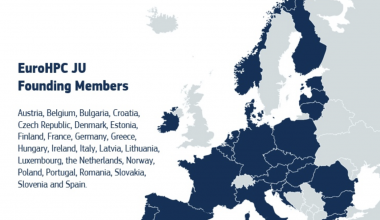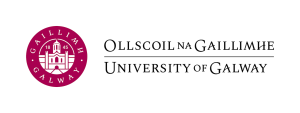Seven Irish Research Projects to benefit from EuroCC_Ireland Academic Flagship Programme

The Irish Centre for High-End Computing (ICHEC), Ireland’s High-Performance Computing authority announced today, Friday September 11, the details of seven academic projects which will be supported by its new Academic Flagship Programme. This two year programme aims to increase Irish competitiveness in the European supercomputing landscape. The seven successful projects were selected from a competitive call which received 13 proposals from researchers distributed across 17 universities/institutes across Ireland, UK, Spain, France, Germany, Denmark, Japan and the USA. The Academic Flagship Programme will operate under the EuroHPC Competency Centre for Ireland which ICHEC recently launched. It is one of 33 similar centres across Europe which form the ambitious EuroHPC programme.
The projects span a range of scientific domains and feature ambitious technical software development to achieve cutting edge scientific discoveries. The Academic Flagship projects are leading research in Artificial Intelligence and Deep Learning, led by PI Lawlor at UCD/Insight; workflows and machine learning for new material discovery, led by PI Sanvito at TCD; large system calculations for nano-electronics, led by PI Ansari at UCC/Tyndall; modelling of wind-driven nebulae around massive stars, led by PI Mackey at DIAS; simulating the formation and growth of black holes in the early Universe, led by PI Regan at MU; simulating the interaction of fundamental particles, led by PI Skullerud at MU and PI Ryan at TCD; and understanding the dynamics of complex quantum systems, led by PI Goold and PI Pietracaprina at TCD.
Commenting on the significance of Euro-HPC Programme for Ireland, J-C Desplat Director, ICHEC said;
“High-Performance Computing is a strategic resource for Europe's future for academia and business. Coming technology changes will drive competitiveness and Europe is aware that supercomputing is fundamental to this. Ireland, through ICHEC, will gain access for researchers and SMEs to a coordinated, integrated, high level of expertise across Europe in high-performance computing and related disciplines for science and industry, such as high-performance data analytics, classical simulation, and artificial intelligence."
The Academic Flagship Projects
- Developing balance between memory and number of cores in parallelization optimization for large system calculations based on DFT and quantum transport.
PI Dr Lida Ansari, Electronics Theory Group, Tyndall National Institute, University College Cork.
This project will examine the hybrid parallelization of QuantumATK code for two large systems as typical building blocks of nanoelectronic devices.
- Kernel polynomial methods for quantum spin chains.
PI Professor John Goold & PI Dr. Francesca Pietracaprina, Trinity College Dublin, School of Physics.
This project aims to efficiently simulate quantum dynamics at large enough system size and at long enough times in order to understand some key emergent concepts in physics such as how an isolated quantum system can appear thermal at macroscopic scales.
- Privacy Preserving Federated Recommender Systems.
PI Dr Aonghus Lawlor, University College Dublin, Insight.
This project will develop artificially intelligent methods which are private by design, without the requirement to collect and centrally store and process personal data. In this way, the user does not have to explicitly opt-in or out of data collection, and they have confidence that their personal data does not leave their device.
- 3D Simulations of Nebulae Around Massive Stars.
PI Dr Jonathan Mackey, Dublin Institute for Advanced Studies
This project will focus on implementing hybrid parallelization into the PION simulation framework for 3D magnetohydrodynamic modelling of wind-driven nebulae around massive stars.
- Optimising open QCD for accelerator-based architectures.
PI Jonivar Skullerud, NUI Maynooth & Professor Sinéad Ryan, Trinity College Dublin.
This project will simulate the interaction of quarks, the fundamental particles that make up protons, neutrons and other hadrons to shed light on quantum chromodynamics (QCD), the force which holds quarks together inside these hadrons, and to investigate the properties of matter in the early Universe.
- Development of a flexible and modularized first-principles machine-learning infrastructure for automatic new materials discovery – application to high-entropy alloys.
PI Professor Stefano Sanvito, CRANN, Trinity College Dublin.
This project will develop an automatic workflow for integrating machine-learning and artificial intelligence with advanced electronic structure theory.
- “Enzo-E”
Dr. John Regan, NUI Maynooth.
Using state-of-the-art hydrodynamic simulations of the early Universe, this project will model the formation and growth of black holes in the early Universe to understand how (and if) black holes populate dwarf galaxies.
Academic Flagship projects are two-year awards and will receive support from designated competence centre experts. PIs will be required to submit a bi-annual milestone report and undergo an end of year renewal review in year one.





